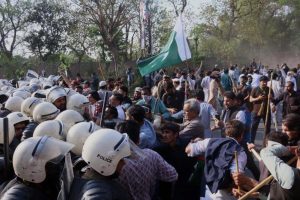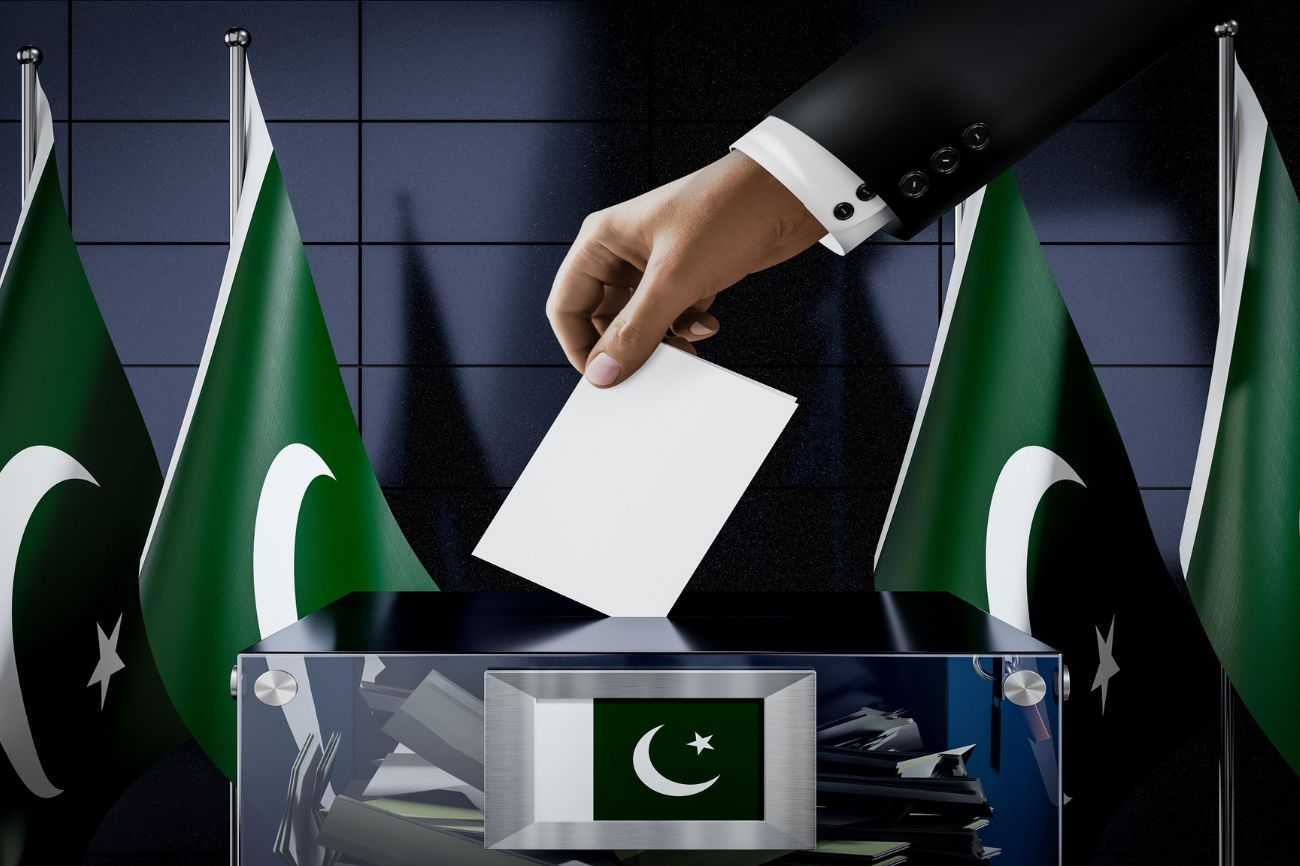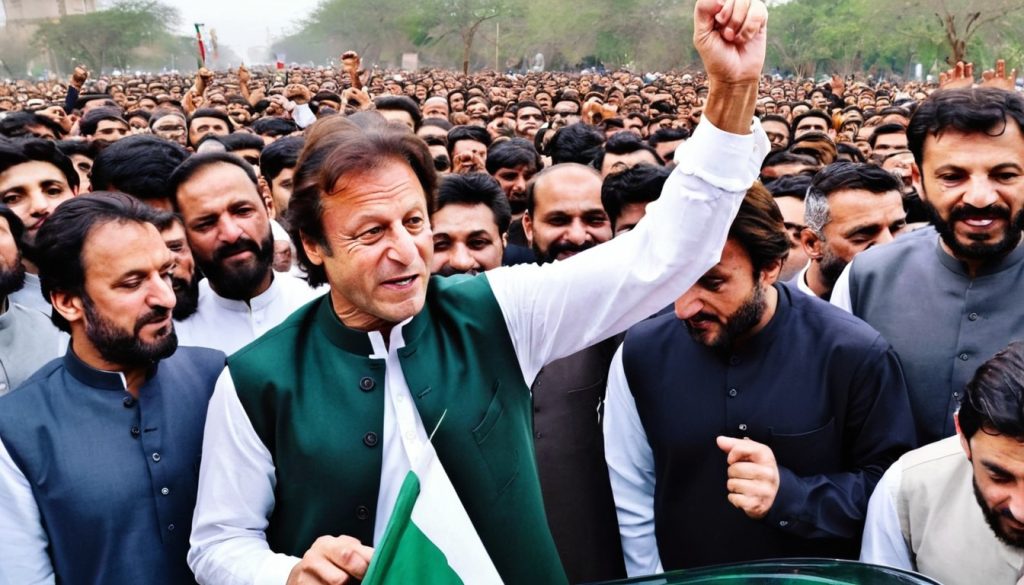The persistent nature of elections poses a continual threat to the stability of Pakistani democracy.
Pakistani voters have faced both physical violence and digital suppression in the ongoing conflict between the military establishment and the political party led by former Prime Minister Imran Khan. The potential for further mistreatment looms as elections draw near, expected within weeks or months.

On August 9, the dissolution of Pakistan’s National Assembly initiated a constitutionally mandated countdown to elections, typically occurring within 90 days. An interim caretaker government led by Anwar ul-Haq Kakar, closely aligned with the influential military, has assumed control. However, the polls might face a delay until 2024 as the electoral commission incorporates new census results, a decision influenced by the outgoing government. Regardless of the timing, this electoral process unfolds against the backdrop of an enduring political crisis rooted in Imran Khan’s conflict with the military.
The repercussions on ordinary Pakistani citizens have been severe. As political factions vie for dominance, citizens endure unprecedented violence, disruptions in internet services, arrests, and harassment. A Pakistani human rights advocate, seeking anonymity for security reasons, expressed concern that the restrictive legal environment for digital speech would impact free discourse and dissent on social media, casting a shadow over the upcoming election.
The genesis of this crisis traces back to April 2022, when Imran Khan, leading the Pakistan Tehreek-e-Insaf (PTI) party, lost a no-confidence vote and the premiership. Citing issues like inflation and economic decline, Khan accused the military, once his supporter, and Western powers, particularly the United States, of interference. In response, he called for a snap election, intensifying his campaign against the military.
Since then, over 150 criminal and civil cases have been filed against Khan, covering charges from tax fraud to murder. Paramilitary forces arrested him in May 2023, leading to widespread protests by PTI supporters. While the Supreme Court ordered his release on procedural grounds, subsequent arrests and a three-year corruption sentence in August have exacerbated the situation. The Election Commission of Pakistan (ECP), having already banned Khan from public office last year, promptly issued another ban upon his imprisonment.
Under this pressure, the PTI is fragmenting, with thousands of supporters arrested, prominent officials resigning, and a breakaway faction forming in July. The outgoing coalition declared that new elections hinged on the ECP redrawing electoral boundaries based on recent census results, extending the authorities’ window to crack down on the PTI.
Amidst this, violence looms, exemplified by an Islamic State attack in late July that killed dozens. Further attacks could escalate instability, providing a pretext for increased military intervention in the election.
The impending election’s dynamics heavily rely on the online sphere, where over 87 million people in a population of 241 million use the internet. However, authorities maintain strict control over the digital space, limiting citizens’ ability to freely express political opinions. Internet restrictions, social media censorship, and punitive measures, like imprisoning citizens for online criticism, raise concerns about fair and open discourse.
The anti-PTI coalition, before leaving office, enacted controversial bills, including the E-Safety Bill, creating a new authority to monitor and regulate online content. This move amplifies concerns, given the history of authorities abusing power, such as blocking Wikipedia in February after it refused to remove content deemed sacrilegious.
In light of these challenges, Pakistan’s fragile democracy faces heightened threats as authorities repress the PTI and tighten controls over online expression. Ensuring the election’s integrity within the constitutional 90-day limit and safeguarding citizens’ rights to express opinions become critical imperatives. The military, in consolidating its position, must not silence the voice of the Pakistani people.
 LED Bulbs
LED Bulbs Downlights
Downlights Tube Rod
Tube Rod Batten Light
Batten Light Panel Lights
Panel Lights Flood Light
Flood Light Rope Light
Rope Light Strip Light
Strip Light Solar Street Light
Solar Street Light Integrated
Integrated Track Light
Track Light Highbay Lights
Highbay Lights Canopy Lights
Canopy Lights Garden Light
Garden Light Emergency Lights
Emergency Lights
 Ceiling Fan
Ceiling Fan Pedestal Fan
Pedestal Fan Louver Fan
Louver Fan Bracket Fan
Bracket Fan Exhaust Fan
Exhaust Fan Table Fan
Table Fan Misting Fan
Misting Fan
 Glamor Series
Glamor Series Star Series
Star Series Rose Gold Series
Rose Gold Series Aluminium Series
Aluminium Series

 PPRC Pipes & Fittings
PPRC Pipes & Fittings U-PVC Pipes & Fittings
U-PVC Pipes & Fittings U-PVC Ducts
U-PVC Ducts
 Electric Heaters
Electric Heaters
 Lear Circuit Breaker
Lear Circuit Breaker PVC Tape
PVC Tape


